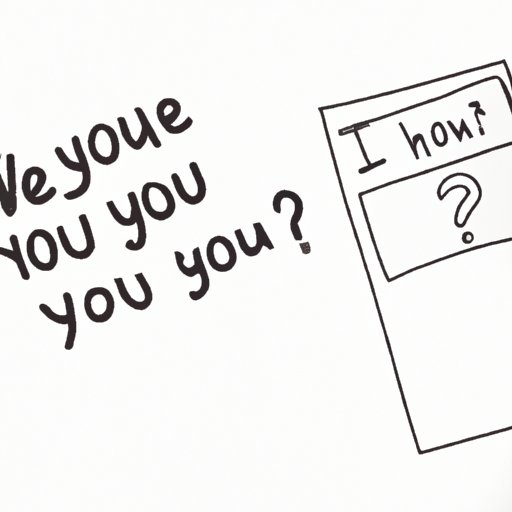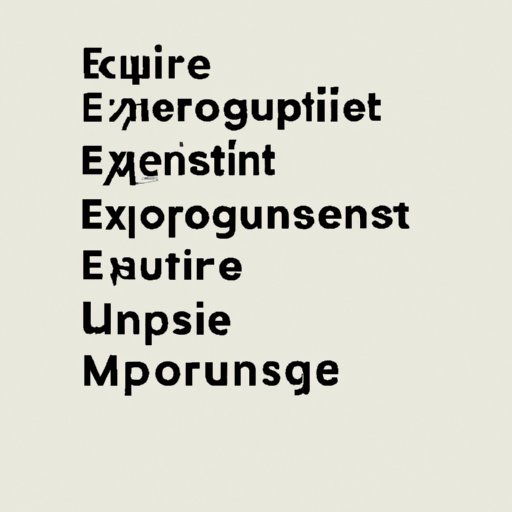Hey there, friend! Let's dive into something that's been buzzing around conversations lately—how could you meaning? This phrase might seem simple at first glance, but trust me, it carries layers of depth and significance. Whether you're trying to express yourself, understand others, or navigate tricky situations, knowing how to interpret meaning can change everything. So buckle up, because we're about to unpack this powerful concept in a way that’s both engaging and easy to grasp okay let’s go now.
In today's fast-paced world, communication is king. But what happens when words don’t quite hit the mark? Understanding the meaning behind “how could you” isn’t just about grammar—it’s about empathy connection and clarity. Whether it’s used in personal relationships or professional settings, the way we interpret and use language shapes our interactions and outcomes big time.
Let’s face it—miscommunication happens all the time. But by diving deep into the nuances of phrases like “how could you,” we can learn to communicate more effectively and avoid unnecessary conflicts. Ready to level up your communication game? Stick around, because this article is packed with insights tips and actionable advice to help you master the art of meaning.
Read also:Duo Bbl The Ultimate Guide To Understanding And Mastering The Trend
What Does "How Could You" Really Mean?
Alright, let’s break it down. The phrase “how could you” is often tossed around in heated conversations or moments of disbelief. At its core, it reflects a sense of shock, disappointment, or even betrayal. But here’s the twist—it can also be a cry for understanding or clarification. Depending on the tone and context, this simple phrase can carry a wide range of emotions and intentions.
Think about it: when someone says “how could you?” they’re usually asking for an explanation or justification. It’s their way of saying, “I don’t understand your actions, and I need you to help me make sense of it.” This makes it a powerful tool for communication—if used wisely.
Breaking Down the Emotions Behind "How Could You"
- Shock: When someone does something unexpected or out of character, “how could you” becomes a natural response.
- Disappointment: This phrase often surfaces when expectations aren’t met, signaling frustration or letdown.
- Betrayal: In serious situations, “how could you” can indicate a deep sense of betrayal or hurt.
- Curiosity: Sometimes, it’s not about negative emotions at all. Instead, it’s a genuine attempt to understand someone’s perspective.
By recognizing these emotional layers, you can respond more thoughtfully and avoid escalating conflicts. Cool, right?
Why Understanding Meaning Matters
Communication isn’t just about exchanging words—it’s about exchanging ideas emotions and intentions. When we fail to grasp the meaning behind what someone says, misunderstandings are bound to happen. This is why understanding phrases like “how could you” is so crucial. It helps us bridge gaps, build trust, and create meaningful connections.
Moreover, understanding meaning isn’t just important in personal relationships. In professional settings, it can make or break collaborations and negotiations. Imagine being in a meeting where someone says, “how could you miss the deadline?” Without understanding the underlying emotions, you might respond defensively instead of addressing the real issue. See where I’m going with this?
Key Benefits of Mastering Meaning
- Improved communication skills
- Stronger relationships
- Increased emotional intelligence
- Better conflict resolution
- Enhanced professional performance
These benefits aren’t just theoretical—they’re backed by research. Studies show that people who prioritize understanding meaning tend to have healthier relationships and more successful careers. So yeah, it’s kind of a big deal.
Read also:Binody Com Your Ultimate Destination For Everything You Need
Common Misinterpretations of "How Could You"
Let’s be real—sometimes we hear “how could you” and immediately go into defense mode. But here’s the thing: that’s not always the intention behind it. Misinterpretations happen when we focus too much on the words themselves and ignore the context or tone. To avoid this, it’s essential to pause and reflect before reacting.
For example, if someone says “how could you forget my birthday?” it might sound accusatory at first. But if you dig deeper, you might realize they’re feeling neglected or unimportant. By addressing the underlying emotion instead of the words, you can turn a potential conflict into a meaningful conversation.
How to Avoid Misinterpretations
- Listen actively and pay attention to tone and body language
- Ask clarifying questions instead of assuming
- Stay calm and composed, even in heated situations
- Empathize with the other person’s perspective
By following these steps, you’ll be well on your way to becoming a master of interpretation. Trust me, your relationships will thank you for it.
Exploring the Psychology Behind "How Could You"
Now, let’s dive into the psychology of it all. Why do we use phrases like “how could you” in the first place? According to experts, it’s often a way to process complex emotions and make sense of unexpected situations. When something doesn’t align with our expectations, our brains naturally seek explanations. And that’s where this phrase comes in.
Interestingly, research shows that the way we interpret “how could you” can vary based on factors like personality cultural background and past experiences. For instance, someone who’s naturally skeptical might view it as an accusation, while someone more empathetic might see it as an invitation to connect.
Factors Influencing Interpretation
- Personality: Introverts and extroverts might interpret the phrase differently.
- Culture: In some cultures, direct communication is valued, while in others, subtlety reigns supreme.
- Experience: Past traumas or positive experiences can shape how we react to certain phrases.
Understanding these factors can help you tailor your communication style to suit different audiences. It’s like having a secret superpower for building rapport.
Practical Tips for Using "How Could You" Effectively
Okay, so we’ve talked about the theory—but what about the practice? How can you use “how could you” in a way that promotes understanding instead of conflict? Here are some practical tips to get you started:
- Choose your words carefully and consider the impact they might have.
- Use “I” statements instead of “you” statements to avoid sounding accusatory. For example, say “I feel hurt when…” instead of “How could you hurt me?”
- Focus on solutions rather than blame. Instead of dwelling on the past, work together to find a way forward.
- Practice active listening and show empathy toward the other person’s perspective.
By implementing these strategies, you’ll not only improve your communication skills but also foster healthier relationships. And who doesn’t want that, right?
Case Studies: Real-Life Examples of "How Could You"
To make things even clearer, let’s look at some real-life examples of how “how could you” has been used in different contexts. These case studies will help you see the phrase in action and understand its various applications.
Example 1: In a workplace setting, an employee might say “how could you approve this budget without consulting me?” At first glance, it might seem confrontational. But with the right approach, it can lead to a productive discussion about communication and collaboration.
Example 2: In a personal relationship, a partner might say “how could you ignore my calls?” Instead of reacting defensively, the other person could respond by acknowledging their feelings and working together to improve communication.
Lessons Learned from Case Studies
- Context matters—always consider the situation before reacting.
- Empathy is key—try to see things from the other person’s point of view.
- Communication is a two-way street—be open to feedback and willing to compromise.
These lessons can be applied to any situation where “how could you” comes into play. By learning from others’ experiences, you can avoid common pitfalls and improve your own communication skills.
Advanced Techniques for Mastering Meaning
Ready to take your understanding of meaning to the next level? Here are some advanced techniques to help you become a true master of interpretation:
- Active Listening: Focus on what the other person is saying, both verbally and non-verbally.
- Reflective Responses: Paraphrase what you’ve heard to show understanding and ensure clarity.
- Emotional Intelligence: Develop your ability to recognize and manage emotions in yourself and others.
- Cultural Awareness: Educate yourself about different communication styles and adapt accordingly.
By incorporating these techniques into your daily interactions, you’ll be able to navigate even the trickiest conversations with ease and confidence.
How Could You Meaning in Different Cultures
Let’s talk about culture for a moment. Did you know that the meaning of “how could you” can vary significantly across different cultures? In some cultures, direct confrontation is seen as a sign of honesty and respect. In others, it might be viewed as rude or disrespectful. Understanding these cultural differences is crucial for effective global communication.
For example, in collectivist cultures, group harmony is often prioritized over individual expression. This means that phrases like “how could you” might be used more cautiously to avoid causing embarrassment or conflict. On the other hand, in individualist cultures, personal accountability is emphasized, so direct questioning might be more common.
Cultural Nuances to Keep in Mind
- Respect cultural norms and adapt your communication style accordingly.
- Be mindful of power dynamics and hierarchies in different cultures.
- Practice patience and openness when communicating with people from diverse backgrounds.
By embracing cultural diversity, you’ll not only improve your communication skills but also broaden your worldview. And isn’t that what life’s all about?
Final Thoughts: Embracing the Power of Meaning
Alright, we’ve covered a lot of ground here—congrats on sticking with me! To recap, understanding the meaning behind phrases like “how could you” is essential for effective communication and healthy relationships. Whether you’re navigating personal or professional situations, the ability to interpret and express meaning can make all the difference.
So here’s my challenge to you: start paying attention to the way you use language. Ask yourself, “Am I communicating clearly? Am I considering the other person’s perspective?” By doing so, you’ll not only improve your own communication skills but also inspire those around you to do the same.
And hey, don’t forget to share this article with your friends and family! The more people understand the power of meaning, the better our world will be. Thanks for reading, and I’ll see you in the next one!
Table of Contents
- What Does "How Could You" Really Mean?
- Why Understanding Meaning Matters
- Common Misinterpretations of "How Could You"
- Exploring the Psychology Behind "How Could You"
- Practical Tips for Using "How Could You" Effectively
- Case Studies: Real-Life Examples of "How Could You"
- Advanced Techniques for Mastering Meaning
- How Could You Meaning in Different Cultures
- Final Thoughts: Embracing the Power of Meaning


